-
 Bitcoin
Bitcoin $117500
2.15% -
 Ethereum
Ethereum $3911
6.19% -
 XRP
XRP $3.316
10.79% -
 Tether USDt
Tether USDt $1.000
0.01% -
 BNB
BNB $787.2
2.24% -
 Solana
Solana $175.2
4.15% -
 USDC
USDC $0.9999
0.00% -
 Dogecoin
Dogecoin $0.2225
8.40% -
 TRON
TRON $0.3383
0.28% -
 Cardano
Cardano $0.7868
6.02% -
 Stellar
Stellar $0.4382
9.34% -
 Hyperliquid
Hyperliquid $40.92
7.56% -
 Sui
Sui $3.764
7.63% -
 Chainlink
Chainlink $18.48
10.66% -
 Bitcoin Cash
Bitcoin Cash $582.1
1.88% -
 Hedera
Hedera $0.2601
6.30% -
 Avalanche
Avalanche $23.33
4.94% -
 Ethena USDe
Ethena USDe $1.001
0.02% -
 Litecoin
Litecoin $122.3
2.04% -
 UNUS SED LEO
UNUS SED LEO $8.969
-0.27% -
 Toncoin
Toncoin $3.339
0.86% -
 Shiba Inu
Shiba Inu $0.00001287
4.30% -
 Uniswap
Uniswap $10.43
7.38% -
 Polkadot
Polkadot $3.861
5.08% -
 Dai
Dai $1.000
0.02% -
 Bitget Token
Bitget Token $4.513
3.41% -
 Monero
Monero $267.7
-6.18% -
 Cronos
Cronos $0.1499
4.14% -
 Pepe
Pepe $0.00001110
5.15% -
 Aave
Aave $284.9
8.28%
What is the insurance fund of MEXC contract? Under what circumstances will it be used?
MEXC's insurance fund covers losses from trader defaults or extreme volatility, ensuring platform stability and trader security through auto-deleveraging if needed.
May 04, 2025 at 03:50 am
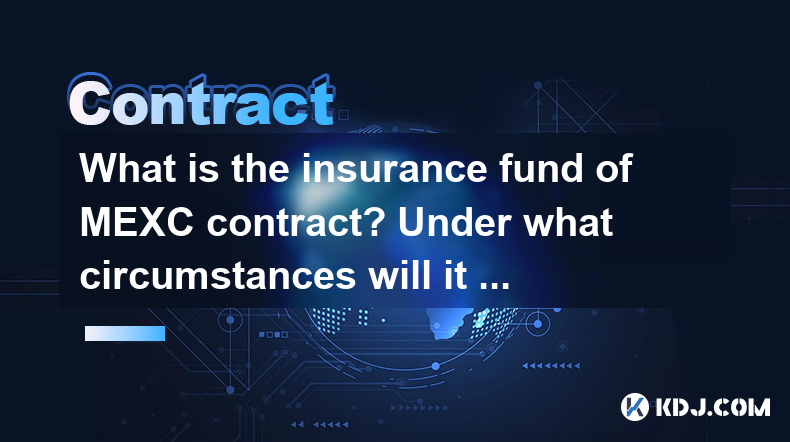
The insurance fund of MEXC contract plays a crucial role in the stability and security of trading on the platform. This article will explore what the insurance fund is, under what circumstances it is used, and how it functions to protect traders on MEXC.
What is the Insurance Fund of MEXC Contract?
The insurance fund of MEXC contract is a pool of funds set aside by the exchange to cover potential losses that may occur due to extreme market volatility or trader defaults. This fund is essential for maintaining the integrity of the futures market on MEXC, ensuring that the platform can handle situations where a trader's account balance falls below zero due to rapid price movements or other unforeseen events.
The insurance fund is typically funded by the exchange itself, as well as from the profits generated from liquidations where the losses exceed the initial margin. This ensures that there is always a buffer to protect the platform and its users from significant financial losses.
How Does the Insurance Fund Work?
When a trader's position is liquidated, and the losses exceed the trader's margin, the insurance fund steps in to cover the deficit. This process is known as auto-deleveraging, where the fund absorbs the loss to prevent it from affecting other traders on the platform.
- Liquidation: When a trader's position moves against them, and their margin is insufficient to cover the losses, the position is automatically liquidated.
- Loss Coverage: If the liquidation price is not met, and the trader's losses exceed their margin, the insurance fund covers the remaining loss.
- Auto-deleveraging: In extreme cases, if the insurance fund is insufficient, the platform may use auto-deleveraging to distribute the loss among other traders with opposing positions.
This mechanism ensures that the platform remains solvent and that traders can continue trading without fear of cascading liquidations that could destabilize the market.
Under What Circumstances is the Insurance Fund Used?
The insurance fund is primarily used in situations where a trader's position is liquidated, and the losses exceed the available margin. Here are the specific circumstances under which the fund comes into play:
- Negative Balance: If a trader's account balance goes negative due to a rapid price movement, the insurance fund covers the deficit to prevent the trader from owing money to the platform.
- Liquidation Failure: In cases where the liquidation price cannot be met due to insufficient market depth, the insurance fund steps in to cover the unrealized losses.
- Extreme Market Volatility: During periods of high volatility, the insurance fund may be used to absorb losses that could otherwise lead to a cascade of liquidations and market instability.
These scenarios highlight the importance of the insurance fund in maintaining a stable and secure trading environment on MEXC.
How is the Insurance Fund Managed?
The management of the insurance fund is a critical aspect of its operation. MEXC employs several strategies to ensure that the fund remains robust and capable of handling potential losses:
- Initial Funding: The exchange initially funds the insurance fund to provide a baseline level of protection.
- Liquidation Profits: Profits from liquidations where losses exceed the initial margin are added to the fund.
- Regular Audits: The fund is regularly audited to ensure its solvency and to adjust its size based on market conditions and trading volumes.
These management practices help to maintain the fund's effectiveness and ensure that it can fulfill its role in protecting traders and the platform.
How Can Traders Benefit from the Insurance Fund?
Traders on MEXC can benefit from the insurance fund in several ways:
- Risk Mitigation: The fund reduces the risk of cascading liquidations, providing a safer trading environment.
- Confidence: Knowing that there is a safety net in place can increase traders' confidence in the platform.
- Stability: The fund contributes to overall market stability, which can lead to more predictable trading conditions.
By understanding how the insurance fund works and its role in the ecosystem, traders can make more informed decisions and trade with greater peace of mind.
Frequently Asked Questions
Q: How often is the insurance fund audited?
The insurance fund is audited regularly, typically on a quarterly basis, to ensure its solvency and adjust its size based on market conditions and trading volumes.
Q: Can traders contribute to the insurance fund?
No, traders cannot directly contribute to the insurance fund. The fund is managed and funded by MEXC through initial allocations and profits from liquidations.
Q: What happens if the insurance fund is depleted?
If the insurance fund is depleted, MEXC may use auto-deleveraging to distribute the loss among other traders with opposing positions to maintain the platform's stability.
Q: Is the insurance fund available for all types of contracts on MEXC?
Yes, the insurance fund is available for all types of futures and perpetual contracts traded on MEXC to ensure comprehensive protection for all traders.
Disclaimer:info@kdj.com
The information provided is not trading advice. kdj.com does not assume any responsibility for any investments made based on the information provided in this article. Cryptocurrencies are highly volatile and it is highly recommended that you invest with caution after thorough research!
If you believe that the content used on this website infringes your copyright, please contact us immediately (info@kdj.com) and we will delete it promptly.
- Tron's Sell-Off Spurs Altcoin Shift: What's Next for TRX?
- 2025-08-08 08:30:12
- Sleep Token's US Takeover: Thornhill Rides the 'Even In Arcadia' Wave
- 2025-08-08 08:30:12
- FTT Token's Wild Ride: Creditor Repayments vs. Market Drop - A New Yorker's Take
- 2025-08-08 07:10:12
- Floki Crypto Price Prediction: Riding the Robinhood Rocket or Just a Meme?
- 2025-08-08 07:15:12
- EigenLayer, Restaking, and Ethereum: Navigating the Hype and the Hazards
- 2025-08-08 06:30:12
- Super Bowl 59: Jon Batiste to Jazz Up the National Anthem
- 2025-08-08 06:30:12
Related knowledge

What are the specific maker and taker fees on KuCoin Futures?
Aug 08,2025 at 08:28am
Understanding Maker and Taker Fees on KuCoin FuturesWhen trading on KuCoin Futures, users encounter two primary types of fees: maker fees and taker fe...
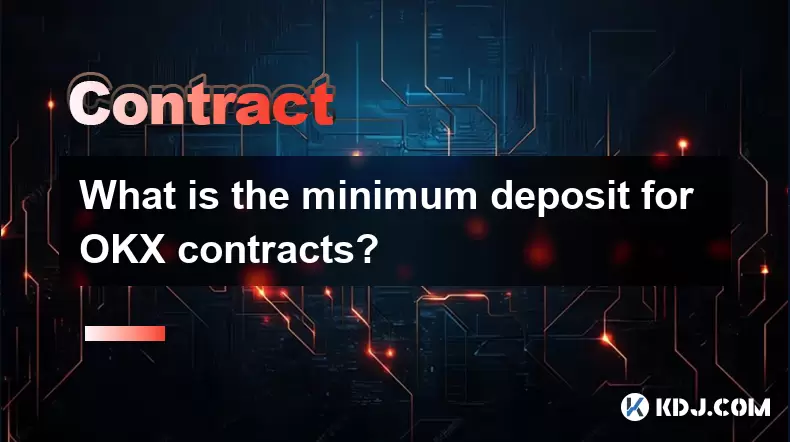
What is the minimum deposit for OKX contracts?
Aug 08,2025 at 07:00am
Understanding OKX Contract Trading BasicsOKX is one of the leading cryptocurrency derivatives exchanges, offering a wide range of perpetual and future...
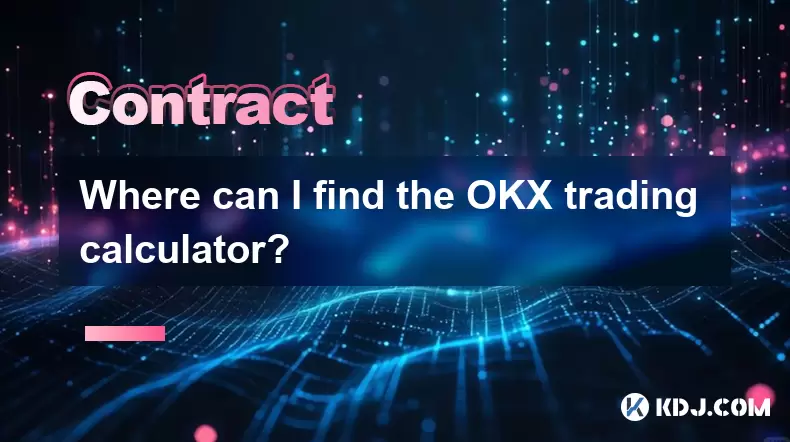
Where can I find the OKX trading calculator?
Aug 08,2025 at 07:49am
Understanding the OKX Trading Calculator FunctionalityThe OKX trading calculator is a powerful analytical tool designed to assist traders in estimatin...
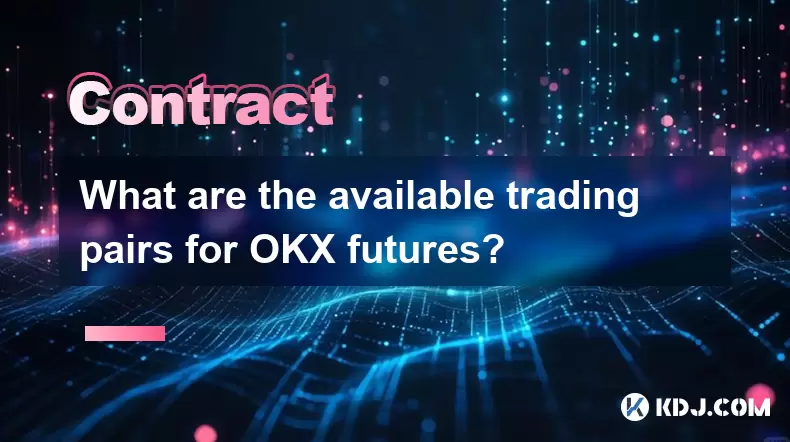
What are the available trading pairs for OKX futures?
Aug 08,2025 at 08:49am
Understanding OKX Futures Trading PairsOKX is one of the leading cryptocurrency derivatives exchanges, offering a wide range of futures trading pairs ...
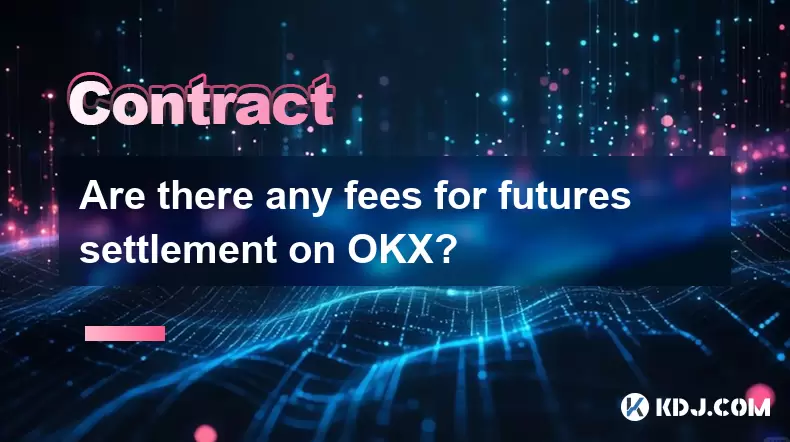
Are there any fees for futures settlement on OKX?
Aug 08,2025 at 05:35am
Understanding Futures Settlement on OKXFutures settlement on OKX refers to the process by which open futures contracts are automatically closed or mar...
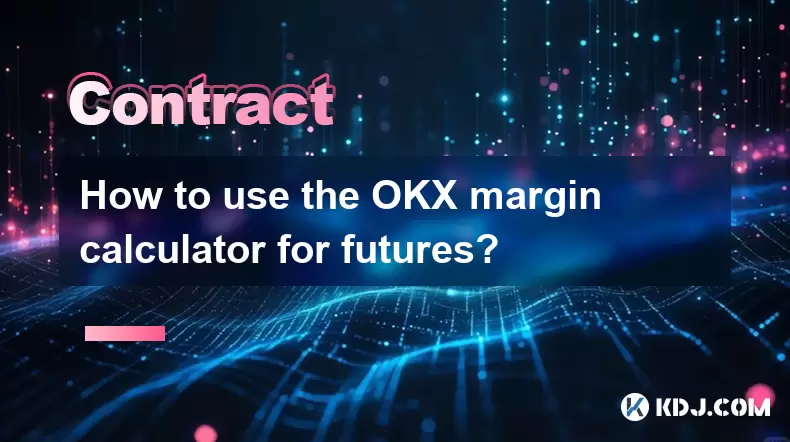
How to use the OKX margin calculator for futures?
Aug 08,2025 at 05:15am
Understanding the OKX Margin Calculator for FuturesThe OKX margin calculator is a specialized tool designed to assist traders in estimating the requir...

What are the specific maker and taker fees on KuCoin Futures?
Aug 08,2025 at 08:28am
Understanding Maker and Taker Fees on KuCoin FuturesWhen trading on KuCoin Futures, users encounter two primary types of fees: maker fees and taker fe...

What is the minimum deposit for OKX contracts?
Aug 08,2025 at 07:00am
Understanding OKX Contract Trading BasicsOKX is one of the leading cryptocurrency derivatives exchanges, offering a wide range of perpetual and future...

Where can I find the OKX trading calculator?
Aug 08,2025 at 07:49am
Understanding the OKX Trading Calculator FunctionalityThe OKX trading calculator is a powerful analytical tool designed to assist traders in estimatin...

What are the available trading pairs for OKX futures?
Aug 08,2025 at 08:49am
Understanding OKX Futures Trading PairsOKX is one of the leading cryptocurrency derivatives exchanges, offering a wide range of futures trading pairs ...

Are there any fees for futures settlement on OKX?
Aug 08,2025 at 05:35am
Understanding Futures Settlement on OKXFutures settlement on OKX refers to the process by which open futures contracts are automatically closed or mar...

How to use the OKX margin calculator for futures?
Aug 08,2025 at 05:15am
Understanding the OKX Margin Calculator for FuturesThe OKX margin calculator is a specialized tool designed to assist traders in estimating the requir...
See all articles

























































































